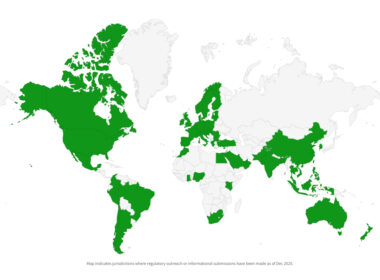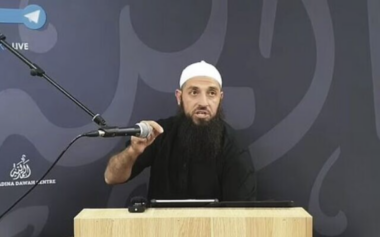News Hub
The latest breaking stories
Access up-to-date news and information on a wide range of press releases including business, finance, technology, healthcare, entertainment, and more.
Discover the most important & comprehensive stories delivered directly to you daily.


- Sport Recreation
- 17/12/2025
- 19:11
Nexo Announces Landmark Crypto Partnership with Tennis Australia for Australian Open and Summer of Tennis
Nexo has signed a landmark multi-year deal with Tennis Australia, covering the Australian Open and the Summer of Tennis. The partnership delivers exclusive experiences,…
- Contains:
- Entertainment, Music
- 17/12/2025
- 18:18
Slinkee Minx Celebrate 21 Years of ‘Summer Rain’ — A Timeless Anthem That Still Soars
Slinkee Minx Mark 21 Years of ‘Summer Rain’ with Anniversary Remix Releases In 2004, Australian dance duoSlinkee Minx ignited dance floors worldwide with their euphoric rework of ‘Summer Rain’. The track stormed the charts, debuting at #5 on the ARIA Singles Chart, holding #1 on the ARIA Dance Chart for 13 consecutive weeks, and topping the UK’s DMC World Hard House and Pop Club Charts. Certified Gold in Australia and crowned the highest-selling Australian dance single of 2004, ‘Summer Rain’ quickly became one of the most defining club anthems of the 2000s, dominating Europe and the UK and earning a…


- Business Finance
- 17/12/2025
- 18:11
VeritasChain Unveils VAP Architecture, New Auditability Research, and Confirms Submissions to 58 Regulators Globally
TOKYO–BUSINESS WIRE– VeritasChain today unveiled its Verifiable AI Provenance Framework (VAP) architecture, published new research on verifiable audit trails, and confirmed informational submissions to…
- Contains:
- Finance Investment, Political
- 17/12/2025
- 17:13
Low- and middle-income Australians with super should not foot the bill for compensation scheme cost blowout
The Super Members Council (SMC) is urging the Government to rethink its decision to push the bill for compensation scheme cost blowouts onto Australians with super, with data in the Mid-Year Economic and Fiscal Outlook (MYEFO) released today showing super tax receipts at forecast highs. Super tax receipts are expected to increase by $10.9 billion over the forward estimates from 2025-26 compared to the estimates in March’s Budget, a 10% increase on the already-high levels estimated in the last update. Despite that, the Government is asking poorer Australians, already feeling squeezed by cost-of-living pressures, to help plug a hole in…
- Contains:


- Science
- 17/12/2025
- 17:11
New Published Data Confirms Nemluvio® (Nemolizumab) Can Rapidly Relieve Itch and Improve Sleep in as Early as Two Days in Both Atopic Dermatitis and Prurigo Nodularis
Post-hoc analyses of the phase III ARCADIA and OLYMPIA clinical trial programs, published in the Journal of the European Academy of Dermatology and Venereology,…
- Contains:
- Government Federal, Mental Health
- 17/12/2025
- 17:05
Australians for Mental Health welcomes mental health spend in mid-year budget update
Australians for Mental Health welcomes mental health spend in mid-year budget update Australians for Mental Health has welcomed the federal government’s decision to fund its election commitment of more than $1 billion for mental health care. The Mid-Year Economic and Fiscal Outlook released today confirms the mental health funding boosts, which will expand services and provide a boost to the workforce. The funding includes $500 million spent on a new network for 20 Youth Specialist Care Centres, $267.3 million for 32 new and upgraded Medicare Mental Health Centres, $225.3 million for 58 new, upgraded or expanded Headspace services and $83.9…


- Political
- 17/12/2025
- 15:45
How Australian Islam proved it is not a religion of peace
Statement by Family First National Director Lyle Shelton We need to face the fact that Islam in Australia is not a religion of peace.…
- Contains:


- Education Training
- 17/12/2025
- 14:57
CDU TAFE First Nations students reach more than 3,300 for the first time
Charles Darwin University was acknowledged as the number one university for equity in Australia, a statement that rings true for CDU TAFE as the…
- Contains:


- Food Beverages, RetailOnline Retail
- 17/12/2025
- 14:22
Make Aussie avocados your STAR menu ingredient this Holiday season!
Key Facts: Aussie avocado growers have great avocado recipes and some of them have shared their Christmas favourites. If it is a meal for…
- Contains:
Media Outreach made fast, easy, simple.
Feature your press release on Medianet's News Hub every time you distribute with Medianet. Pay per release or save with a subscription.

